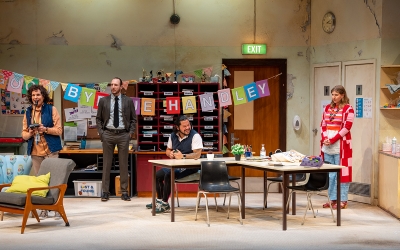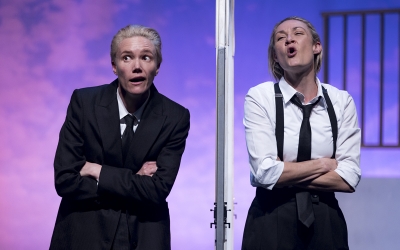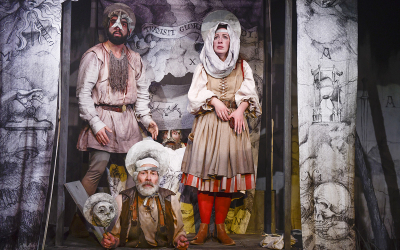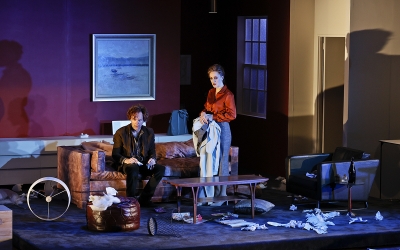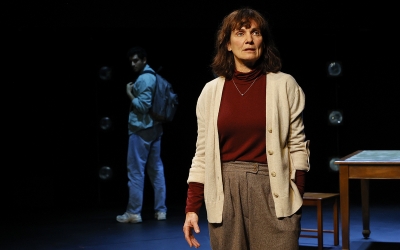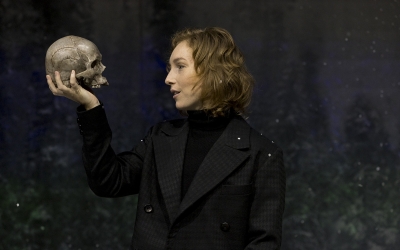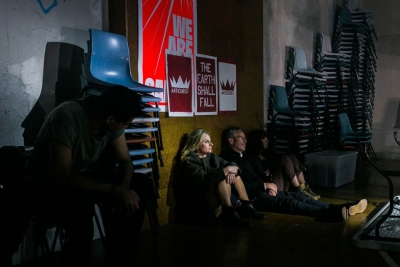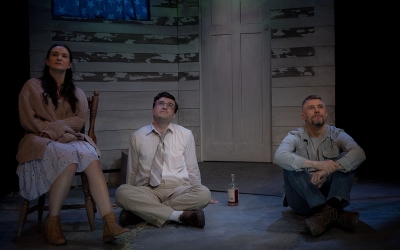Theatre
Every other day there seems to be a news story about the largesse with which public money is dispensed to private schools while the public education system falls further into disrepair and dysfunction. As reported in February 2022 by the Guardian, recent analysis by Save Our Schools shows that between 2009 and 2020 government funding for independent schools increased by $3,338 a student compared with just $703 more per student for public schools.
... (read more)One thing is certain: Shakespeare’s The Comedy of Errors is flat out hilarious, and if it isn’t funny enough on stage, it’s the fault of the production. His only farce, it is often thought to be an early work, but it is surely far too assured to be written before 1594. It’s entirely free of the striving Marlovian rhetoric that hampers the Henry VI plays (commenced in 1591), and it is cleaner, cleverer, and more convincing than The Taming of the Shrew (probably before 1592). It is based on Plautus’s Menaechmi ...
... (read more)It opens outside the tiny wooden box that is Red Stitch’s St Kilda home; the actors come towards us with torches blazing, in medieval masks. What follows is a brief pageant, a morality play that breaks down when one of the players falls victim to a mysterious pestilence – although it’s clear from the catch in the other actors’ voices that this contagion is not entirely unexpected. The actor drops, and his sister must be wrenched from his fallen body before she too succumbs. The plague is about, and all anyone can do is run.
... (read more)English Nobel Laureate Kazuo Ishiguro has had several works translated into film – notably The Remains of the Day (1993) and Never Let Me Go (2010) – but Melbourne Theatre Company’s Come Rain or Come Shine is the first stage musical based on his work. One of five short stories on the theme of music and nightfall that make up the collection Nocturnes (2009), it’s an odd little tale of friendship and failure that careens from the gently elegiac to the outright farcical, like F. Scott Fitzgerald via Michael Frayn.
... (read more)Early on in Jonny Hawkins’s Maureen: Harbinger of Death, Maureen invites an audience member to light her cigarette. The man she chooses, like most audience participants, hesitates. She beckons him with a wry smile. As he wanders on stage, she immediately notices his bare face. She presents him with a mask – coordinated perfectly to the colour of her room and attire – and remarks: ‘He has a chin that could have sunk the Titanic.’
... (read more)On paper, American playwright Adam Rapp’s The Sound Inside is an intriguing piece of writing. Bella Baird, a professor of creative writing at Yale University, ‘emerges from the darkness’ onto a nondescript stage and introduces herself. She speaks in the ‘heavily embroidered, figurative’ sentences that she dissuades her students from using, a liberty she allows herself standing here, alone in a park, ‘[talking] things out’.
... (read more)Back in 1991, Bell Shakespeare opened their very first season with Hamlet, starring John Polson and directed by John Bell himself; it deliberately highlighted the Australian vernacular, almost over-emphasising the flat vowel sounds and local cadences over the fruitier delivery we inherited from the British. It had a gritty contemporary setting, and garishly over-the-top costumes. It also wasn’t very good.
... (read more)Caryl Churchill’s Light Shining in Buckinghamshire, first performed in 1976, is a dense and difficult play set during the English Civil War. The period may be distant in time but Churchill, working in a broadly Marxist tradition, sees it as an era when fundamental questions of governance were tested by a mass of ordinary people. From whom does the state derive authority, and is a person bound to obey laws they find unjust? Does the existence of private property – those enclosed lands cultivated for the profit of a few – offend against the common good? Do the rich offend God? ‘For a short time when the king had been defeated anything seemed possible,’ Churchill wrote in a 1978 introductory note. The possibilities included, for some, Christ’s return and with it the instigation of an earthly Paradise.
... (read more)Not long into Will Arbery’s Heroes of the Fourth Turning a character brings out an acoustic guitar and is asked to play a song. He chooses Townes Van Zandt’s ‘Nothin’’, a melancholy ballad pulled from the annals of American folk music. When it was released in 1971, many assumed it represented Van Zandt’s struggle with drug addiction. In fact, as he explained two years before his death, the song was inspired by Nikos Kazantzakis’s The Last Temptation of Christ, a novel banned by the Catholic Church in 1955 for representing a Christ figure prone to human fallibilities.
... (read more)Although America produced other alternative filmmakers of his generation like Kenneth Anger and Maya Deren, John Cassavetes (1929–89) would have to be considered the doyen of the movement. Directors as diverse as Martin Scorsese, Jim Jarmusch, Peter Bogdanovich, and Pedro Almodóvar have acknowledged his influence. Technically rough though they may sometimes be, Cassavetes’ films have a raw power that, in the words of Amy Taubin, ‘catch you up, turn you around, bore you a little, startle you, and throw you out upset and confused’. Opening Night (1977), a film that was undervalued when it first appeared and is now perhaps somewhat overvalued, is no exception.
... (read more)

